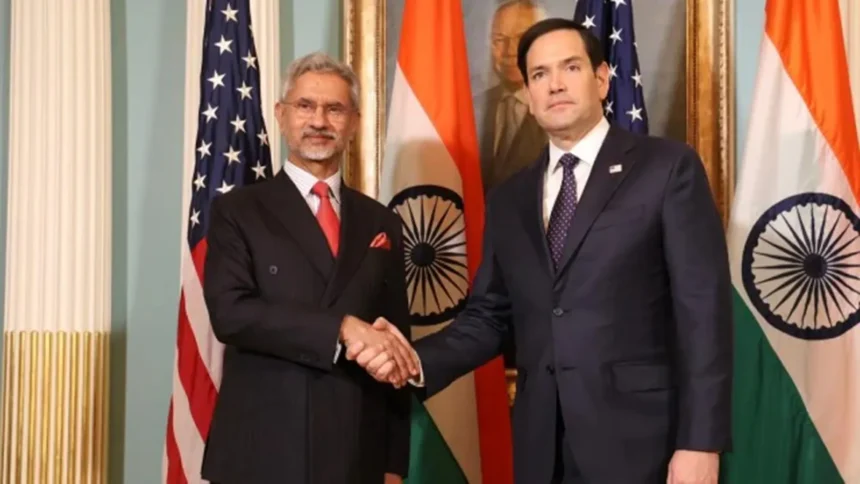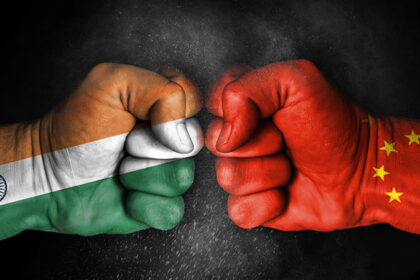India US Trade Talks: National Sovereignty under Siege
India’s ongoing trade negotiations with the United States are unfolding behind a veil of secrecy – sparking alarm over transparency, national interest, and the long-term cost of short-term concessions. While Commerce Minister Piyush Goyal has acknowledged a “dialogue” with Washington, he has offered no clarity on its scope or substance.
This silence stands in sharp contrast to the blunt pronouncements of US President Donald Trump, who claimed – without qualification – that India had agreed to reduce tariffs on American goods to “nothing,” implying a zero-tariff level.
The first tangible sign of capitulation came with New Delhi’s abrupt decision to slash cotton import duties from 11% to zero. Ostensibly aimed at aiding struggling textile exporters by lowering input costs, the move threatens the livelihoods of millions of smallholder cotton farmers across Gujarat, Maharashtra, and Telangana. The irony is stark: even as Indian farmers face ruin from cheap imports, Indian textile exports are slapped with a punitive 50% US tariff – a double bind that reeks of imbalance.
Critics argue this is not trade policy but surrender. The government’s rationale– that cheaper raw cotton will boost competitiveness– rings hollow when weighed against the asymmetric pressures of the negotiation. And the concessions may only be beginning.
Red lines fading, sectors at risk
Promises to protect agriculture and resist genetically modified (GM) crop imports – long-standing pillars of India’s food sovereignty – appear increasingly fragile. Signals suggest US agribusiness could gain unprecedented access to India’s rural economy, a sector that sustains around eight hundred million people. Such a shift would not only undermine domestic farming but also erode India’s ability to shape its own agricultural future.
Even more concerning is the timing. The government’s apparent hesitation in responding to US demands coincides with the Bihar elections, raising suspicions that strategic economic decisions are being deferred for political expediency – a dangerous precedent for policy-making.
The threat extends far beyond the farm. In the financial sector, openings are being created for American corporate interests under the guise of liberalisation. The latest acquisition of Bengaluru-based fintech firm Axio by Amazon – granting the e-commerce giant a direct lending license – is more than a business deal. It is a signal: India’s financial gateways are being pried open, even in areas critical to economic sovereignty.
Meanwhile, the Trump administration continues to push its destabilising cryptocurrency agenda, seeking regulatory leniency that could compromise India’s financial stability– all under the banner of “free trade.”
Coercion masquerading as reciprocity
Trump’s trade rhetoric remains as aggressive as ever. Despite a US federal appeals court invalidating his use of the International Emergency Economic Powers Act to impose “reciprocal” tariffs, the 50% levy on select Indian exports remains in place. This comprises a 25% “fair and reciprocal” tariff and another 25% tied to India’s energy purchases from Russia – a clear attempt to weaponise trade for geopolitical leverage.
Yet Trump insists the relationship is “totally one-sided,” favouring India. This claim ignores reality: American corporations– from Big Pharma to Silicon Valley giants like Amazon and Google– have reaped enormous profits in India’s growing consumer market. It also overlooks decades of multilateral trade rules and India’s development imperatives. Reducing complex economic relationships to tariff arithmetic is not just misleading– it’s manipulative.
An open letter, a national wake-up call
On August 30, a powerful coalition of civil society organisations, led by the Forum for Trade Justice, issued an Open Letter titled “Why India Must Not Give in to US Tariff Blackmail.” The message was urgent and unambiguous: the visible tariff war is a smokescreen for deeper, structural demands that could permanently compromise India’s sovereignty.
The letter warns that behind the closed doors, India may be pressured into irreversible concessions in areas that define national autonomy:
- Pharmaceuticals: US demands to allow evergreening of patents would dismantle India’s world-renowned generic drug ecosystem – built on Indira Gandhi’s 1970 decision to prioritise public health over corporate profits. The result? Skyrocketing medicine prices and a blow to global health leadership.
- Digital Sovereignty: India could be forced to abandon digital service taxes, permit unfettered cross-border data flows, and even share public data with US tech firms – undermining data localisation efforts and national security.
- Government Procurement: The US seeks preferential access to India’s vast public procurement market, potentially exceeding the terms granted in the recent UK-India FTA – without reciprocal benefits.
- Foreign Policy Subordination: The demands go beyond trade. Washington is pushing India to halt oil imports from Russia, Iran, and Venezuela; dilute its role in BRICS; and abandon initiatives to trade in local currencies. This is not trade negotiation– it is strategic coercion.
The real cost of a deal
What’s at stake is not just market access, but India’s right to self-determination. Any agreement that trades long-term policy autonomy for temporary tariff relief is not a victory– it is a surrender.
In its rush to appease Washington and project strength at home, the Indian government risks a far greater loss than any export setback: the erosion of its sovereign authority to shape laws, regulate industries, and protect its people. The real danger isn’t tariffs – it’s the quiet, irreversible transfer of policy control to a foreign power.
India must not barter its sovereignty for the illusion of a quick fix. The time has come for transparency, democratic scrutiny, and a trade policy rooted not in fear or political optics, but in the enduring interests of its people.
Also Read: Indonesia crisis voices of citizens on chaos and solutions








